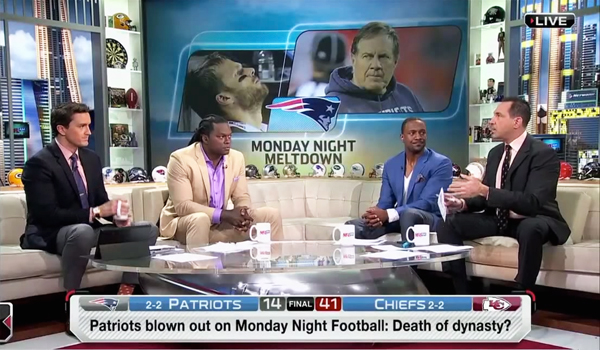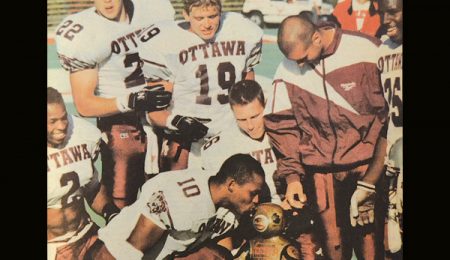Talking heads and pundits are pulling down the games we all know and love
Photo: YouTube
Overreacting comes hand-and-hand with sports—be it diving in soccer or dancing after touchdowns in football.
In-game exaggerations are to be expected and sometimes encouraged, but when it leaves the field of play it gets dangerous.
Sports media, love it or hate it, is a vital facet of the sports landscape. Unfortunately, sensationalism sometimes overshadows what otherwise would be a fantastic medium of expression.
For one, overanalyzing minute details is something so common, it’s often overlooked by casual sports fans. Looking at professional sports and the way issues are reported on and examined, there is a fundamental issue present. The cavalier attitude that comes along with breaking down sports has much more significant undertones than what may be present.
An overall lack of hesitation to rip apart teams and players without allowing time for the situations to play themselves out is commonplace.
Over the last year, there were many cases where pundits collectively called for the end of a player or team’s dominance. Needless to say, these pretentious statements weren’t always as accurate as these pundits wanted you to believe.
Back in 2009, then Miami Dolphins wide receiver Brandon Marshall’s name was plastered across headlines after multiple assault and domestic violence issues made their way to the media. The media was quick to paint the picture of another athlete full of rage, all the while Marshall was suffering from borderline personality disorder. The painted picture did not define Marshall as he rose up becoming the loudest voice discussing mental health issues in the NFL, while at the same time becoming one of the best players in the league.
The New England Patriots started last season 2-2, and endured a week of the media calling for the end of their dynasty—they went on to win the Super Bowl four months later.
Yankees slugger Alex Rodriguez sat out the 2014 season after a steroid scandal, but in response to the media backlash he hit 33 home runs and drove in 86 runs this year.
In 2007, Greg Oden was picked first overall in the NBA draft. The media was calling him “the next Shaq” and chose to brush off his injury history. Instead of becoming the league’s next top big-man, Oden’s knees gave out causing him to miss four seasons and only play in 105 games. The media played a huge role in building him up before the draft, and also tearing him down afterwards.
All these instances are indicative of the fact that we live in a ‘talking head’ culture—turn on any sports TV or radio show and you will hear someone propagating ideals to feed the beast of a 24-hour news cycle. Talking heads are the driving force behind the trending headlines, and all it takes is a simple tweet to start the machine. No, not all athletes are perfect, but separating what defines them as a person and as a player is a crucial distinction.
Massive sports media institutions prioritize protecting their bottom line rather than the quality of reporting or opinions coming out of their on-air talent and voices. Across the media landscape there are journalists and experts getting paid millions to have an opinion and as long as they don’t cross too many boundaries they have free reign to pick their shots.
Sensationalist talking heads can break down players, but when things get serious, the media giants are often the first to hide behind their bank accounts rather than protecting their important opinions and reporting.
Earlier this year, ESPN chose to not renew its contract with Bill Simmons, their most famous writer and podcaster. After 14 years at the media giant, Simmons was out of a job because he was critical of NFL commissioner Roger Goodell’s punishment policies. ESPN chose their multi-million dollar deal with the NFL over the rightfully expressed opinions of a writer.
Freedom of the press is a valued fundamental principle in North America and when the press turns on its producers to protect their fiscal interests—there is a serious breakdown happening.
Sports should never be comparable to a gossip magazine—sports itself is an idealistic example of decisiveness, with every game having a victor and every season a champion. Putting an emphasis on the facts and analyzing the empirical evidence provided is of the utmost importance.
Ultimately, if it were decided to put time and effort into covering what happened on the field of play, instead of predicting the future, everyone would be much better off in the long run.







